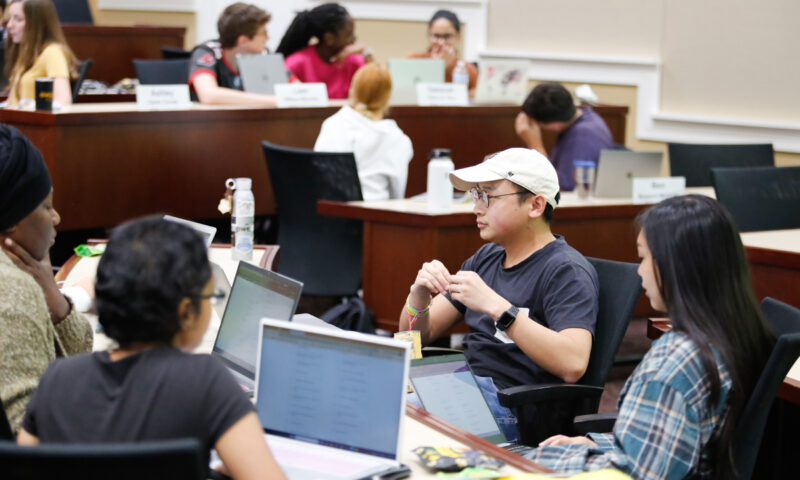If you’re considering a Master’s in Accounting program, one of your biggest priorities is earning enough credits and qualifying to become a Certified Public Accountant. As you may already know, there are four sections to the uniform CPA exam. According to the American Institute of Certified Public Accountants (AICPA), here’s a brief overview of what topics are covered:
Auditing and Attestation (AUD): This section covers knowledge of auditing procedures, generally accepted auditing standards and other standards related to attest engagements, ethics, and the skills needed to apply that knowledge.
Business Environment and Concepts (BEC): This section covers knowledge of general business environment and business concepts that candidates need to know in order to understand the underlying business reasons for and accounting implications of business transactions, and the skills needed to apply that knowledge.
Financial Accounting and Reporting (FAR): This section covers knowledge of generally accepted accounting principles for business enterprises, not-for-profit organizations, and governmental entities, and the skills needed to apply that knowledge.
Regulation (REG): This section covers knowledge of federal taxation, ethics in tax practice, professional and legal responsibilities, and business law, and the skills needed to apply that knowledge.
Many of our classmates have already begun studying for the exam and took advantage of the month-long winter break to get in some quality study time. Theresa Bates (M.S. in Accounting ’19) remarks, “I decided to take FAR first because it’s the longest section, and we just learned some of the concepts in our Accounting Policy class so it’s fresh in my mind. I wanted to take advantage of some free time over winter break!” On the other hand, I decided to take AUD first because it’s one of the shorter sections so I could finish studying for it over winter break and be prepared for the exam by end of January before we got in the swing of classes.
Although the Program’s curriculum doesn’t build in CPA preparation, UVA holds the #5 “First-Time CPA Pass Rate” (NASBA Report, 2017) out of 797 institutions in the country. Many students have found the concepts and critical thinking skills they learned from their first semester to be extremely helpful. Students can also rely on their classmates and friends as a support system, and, best of all, study buddies! Steven Simon (M.S. in Accounting ’19) said, “It’s a big undertaking to study for the CPA while in school, but having my supportive community at McIntire makes it the ideal place to do so. My classmates and I share tips all the time to help each other succeed. Although our classes don’t teach to the CPA exam, the critical thinking skills we practice in class complement and simplify the material on the exam.”
Classes that complement the material on the CPA exam include Accounting Policy, Taxation for Partnerships, Taxation for Corporations, Legal Liability and Regulation, Government and Nonprofit Accounting, and many more. The topics that are covered in these classes will help students in all sections of the CPA. I took Accounting Policy fall semester and it taught me the conceptual frameworks important for the FAR exam. Many students are also taking the newly offered 1.5 credit classes, Legal Liability and Regulation and Government and Nonprofit Accounting, topics which are covered in BEC and FAR.
Another perk of McIntire’s program is that it offers a front-loaded, 3-credit course Accounting, Finance & Financial Management in Europe over spring break in London. Students who choose to take this course are then able to spend more time in the last half of their spring semester preparing for the CPA exam. If you manage your time efficiently, it is certainly possible to take more than one exam over the spring semester.
Learn more about the M.S. in Accounting’s flexible curriculum and coursework here.


